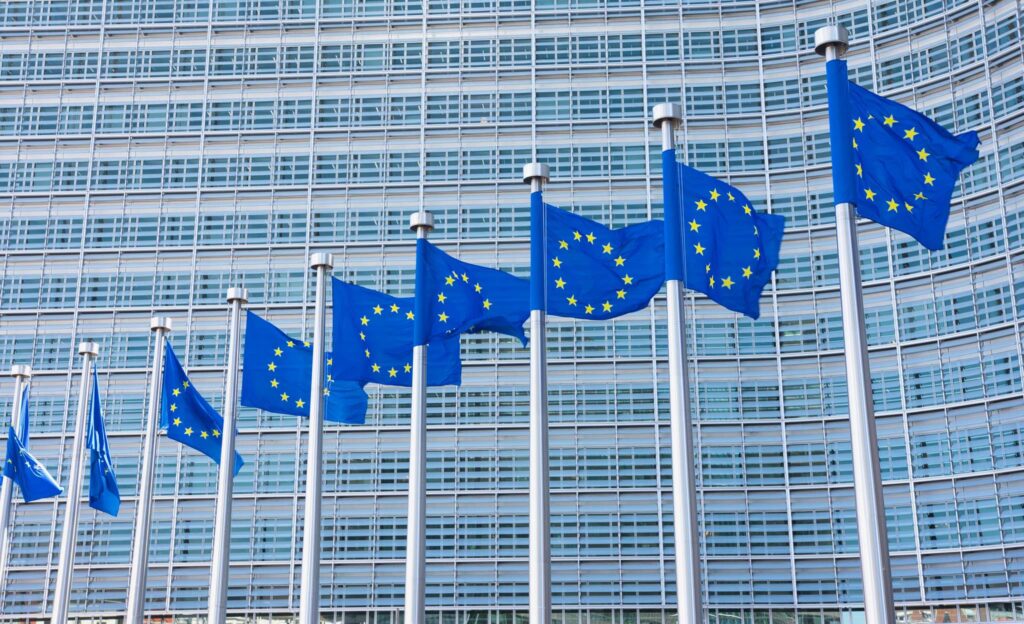Opinion: EU shift on Sudan war ‘late in coming’

The EU headquarters in Brussels (File photo: Kyle Wagaman - Creative Commons)
The European Union has stepped up its accusations that Iran, Russia, and the UAE are fuelling the war in Sudan by supporting both the Sudanese Armed Forces (SAF) and the paramilitary Rapid Support Forces (RSF). Observers believe that the European position towards the war in Sudan represents a shift in international trends following the conflict in Sudan, but “it is late in coming”, analysts have commented to Radio Dabanga reporter Mohamed Suleiman.
The European Union asserted that Iran is working to deliver weapons, including drones, to the SAF. UAE also stands directly with the RSF to resolve the war. While Russia is playing on both sides to access infrastructure and strategic resources
As previously reported by Radio Dabanga, In a joint statement on Monday, the European Union’s High Representative for Foreign Affairs and Security Policy and Vice-President of the European Commission, Josep Borrell Fontelles, and Janez Lenarčič, European Commissioner for Crisis Management, lament that the war in Sudan is approaching its second year, and call for an immediate ceasefire, access to humanitarian aid, and for the warring parties to join negotiations for peace.
Positive attitude
Journalist and political analyst Abuzar’a Ali believes that the new position of the European Union, directing accusations against supporters of the parties to the conflict in Sudan, has a lot of positivity. In an interview with Radio Dabanga, Ali asserts that “the position was late in coming”. He indicates that it represents a shift in international trends in the conflict in Sudan, “which is more in the interest of the post-war future than it is useful right now.”
The analyst believes that the main problem with the international positions towards the conflict in Sudan is that “they are characterised by weakness, delay, and a lot of indifference”.
He suggests that “the international community always takes positions but that this does not result in anything concrete, and therefore they are announced in the media only. These positions have coexisted for a long time since the decisions of the International Criminal Court, so therefore we hope that this time these positions will show an actual change in direction.”
He calls on the EU “to adopt real positions that include the attitudes of the Sudanese people and their aspirations for security, stability, and democratic governance. He urges that “statements of the EU position at the level of public media should be followed by actions on the ground”.
Stricter measures to stop the supply of weapons
The accusations against Iran, Russia, and the UAE of supporting the parties to the war and fuelling the conflict in Sudan contain some truth, Ali says. “This is clear because the UAE plays on both sides, but tends to the Western part in general, which is supported by the USA and Israel.”
He argues that the Russian part is trying to manoeuvre and affect the European situation, so Europe included it in this accusation in this way, but not at the level of Israeli and American action in general.
Finally, he asserts, “these are accusations on which we hope practical things will be based to change the rhythm and violence of the war on the ground, at least by measures to stop the supply of weapons to all parties with stricter measures.”
‘Sudan has become a quagmire of international conflicts of interest’
Legal expert Elsadig Hasan proffers that “Sudan has become a theatre for conflicts of regional and international interests,” and confirms that the accusations launched by the European Union against Iran, Russia, and the UAE of supporting the parties to the war in Sudan are correct because there is a ‘race’ for interests in Sudan.
In an interview with Radio Dabanga, Hasan points out that “the international community has proven that it is not serious because it did not intervene decisively in the interest of ending the conflict in Sudan”. He says that the EU is looking after its own interests in combating illegal immigration to Europe, and accused the EU of cooperating with the RSF and supporting it financially, as well as providing technical support.
“Sudan has become a quagmire for the intersection of international interests,” Hasan says, questioning “what serious steps the EU itself could take to stop the war and what measures the EU could take other than making accusations”.











 and then
and then